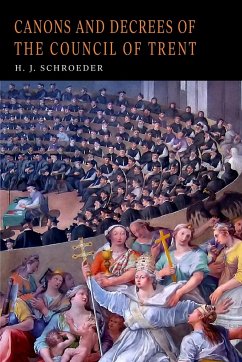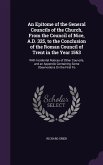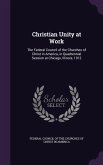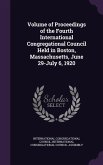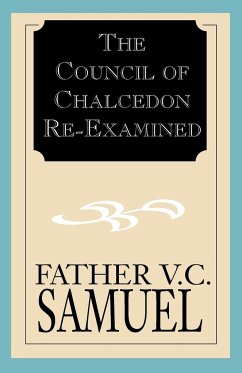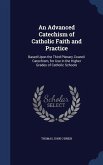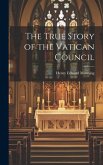2020 Reprint of the 1941 Edition. Full facsimile of the original edition and not reproduced with Optical Recognition Software. The Council of Trent, held between 1545 and 1563 in Trent (or Trento, in northern Italy), was the 19th ecumenical council of the Catholic Church. Prompted by the Protestant Reformation, it has been described as the embodiment of the Counter-Reformation. The Council issued condemnations of what it defined to be heresies committed by proponents of Protestantism, and also issued key statements and clarifications of the Church's doctrine and teachings, including scripture, the Biblical canon, sacred tradition, original sin, justification, salvation, the sacraments, the Mass, and the veneration of saints. The Council met for twenty-five sessions between December 1545 and December 1563. Pope Paul III, who convoked the Council, oversaw the first eight sessions (1545-47), while the twelfth to sixteenth sessions (1551-52) were overseen by Pope Julius III and the seventeenth to twenty-fifth sessions (1562-63) by Pope Pius IV. The consequences of the Council were also significant with regard to the Church's liturgy and practices. During its deliberations, the Council made the Vulgate the official example of the Biblical canon and commissioned the creation of a standard version, although this was not achieved until the 1590s. In 1565, a year after the Council finished its work, Pius IV issued the Tridentine Creed and his successor Pius V then issued the Roman Catechism and revisions of the Breviary and Missal in, respectively, 1566, 1568 and 1570. These, in turn, led to the codification of the Tridentine Mass, which remained the Church's primary form of the Mass for the next four hundred years. Contents: * Indulgences* Justification* The Eucharist* Transubstantiation* Penance* Extreme Unction* Marriage * Holy Orders* Original Sin* Purgatory* Veneration of Saints & Relics* The Nature of the Mass* The Nicene Creed* The Authenticity of the Latin Vulgate.

